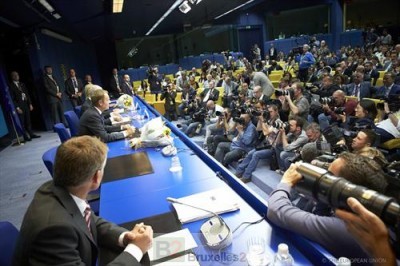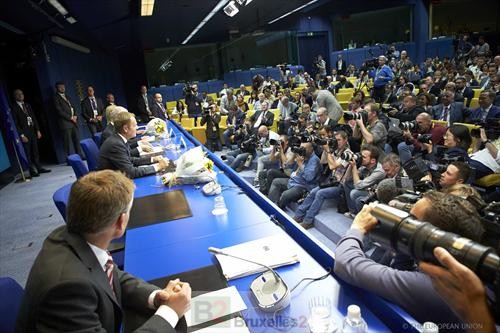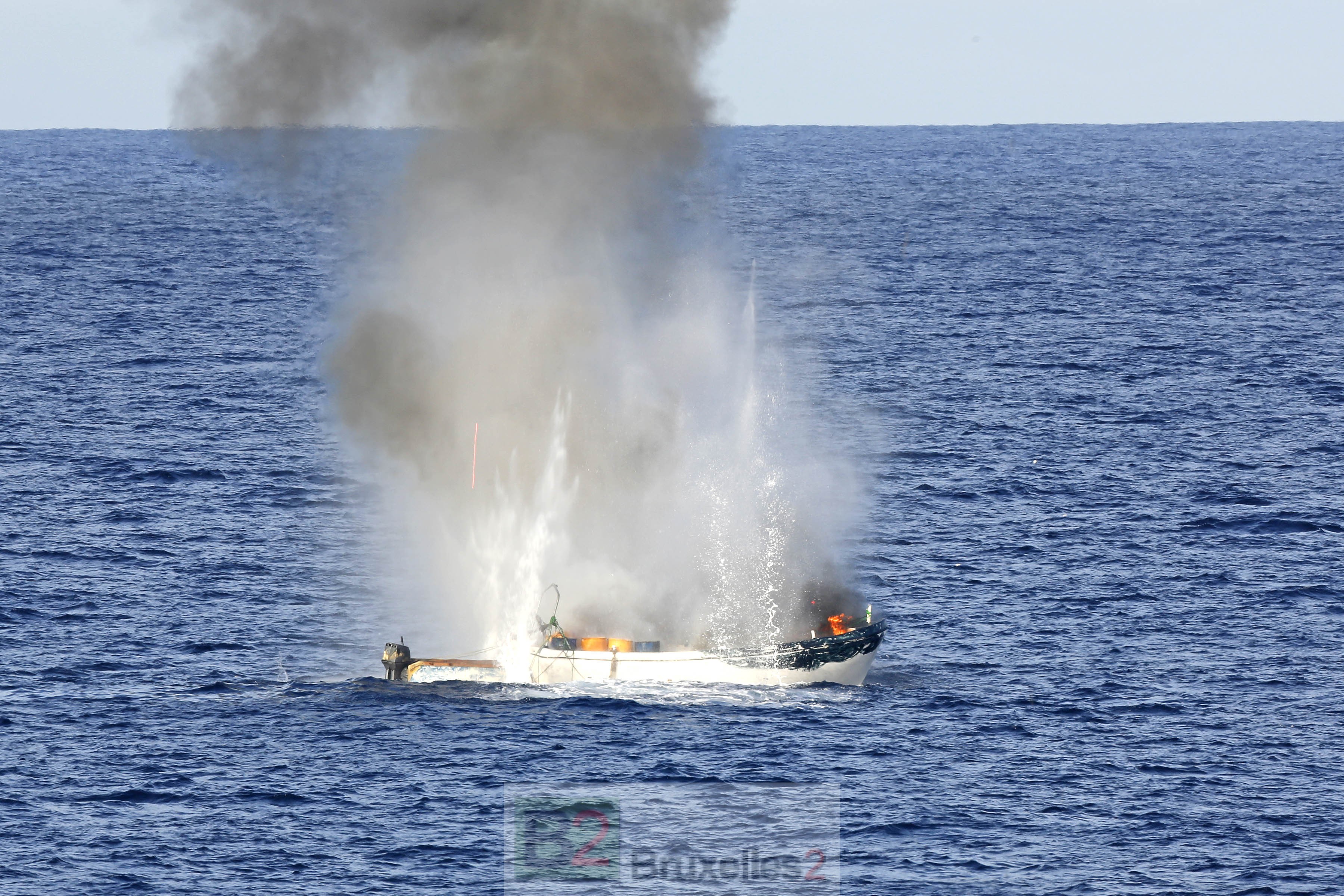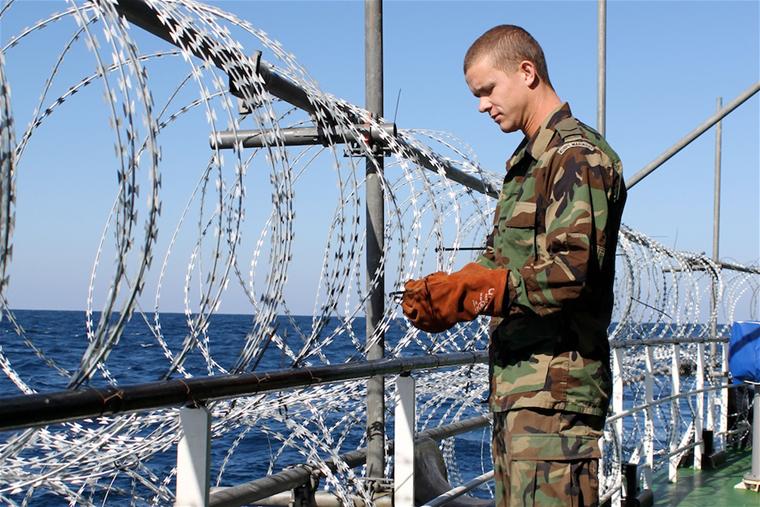2014, year of European renewal
 (BRUSSELS2) This year 2014 will have been at European level, above all, that of the renewal of European structures. For several months, the European Union was in an election period. It was a question of renewing not only the European parliamentarians but behind them, a whole political system: the parliamentary committees, crucible of European law on the side of the parliamentary assembly, the commissioners and their cabinets, sinews of the war of the European initiative. The European Commission was, in fact, for the first time, the result indirectly of universal suffrage. And the "head" positions (President of the Commission, of the European Council, High Representative) resulted indirectly from the political balance of power born of the elections.
(BRUSSELS2) This year 2014 will have been at European level, above all, that of the renewal of European structures. For several months, the European Union was in an election period. It was a question of renewing not only the European parliamentarians but behind them, a whole political system: the parliamentary committees, crucible of European law on the side of the parliamentary assembly, the commissioners and their cabinets, sinews of the war of the European initiative. The European Commission was, in fact, for the first time, the result indirectly of universal suffrage. And the "head" positions (President of the Commission, of the European Council, High Representative) resulted indirectly from the political balance of power born of the elections.
The “Spitzenkandidat” system developed in the European Parliament by the main political parties (People's Party, Socialist Party, Liberals and Greens) has worked to the full. The bet was not easy. But it was ultimately the candidate (Jean-Claude Juncker) of the leading party (EPP) who was appointed head of the European Commission, generating for the first time a vote in the European Council, usually accustomed to formulas more consensual (Read: Will Jean-Claude Juncker be elected President of the Commission?).
Vote which resulted, also a major fact, in the outvoting of the United Kingdom, which had so far succeeded in blocking any candidate who was a tad too European (Dehaene in 1994, Verhofstadt in 2004 for example). And it was the candidate (Martin Schulz) of the second leading party (PES) who took over as head of the European Parliament. A result that was not automatically provided for in the Spitzenkandidat system (at least officially).
However, a downside must be made to this innovation: the sluggishness of the European system for many months – which was in slow motion between February and November 2014 – forces us to think about how to adapt this device, which is more democratic, but also paralyzing (read:Appointment to the Commission. A very justified procedure but far too slow).
A change of political mood
Be that as it may, the new executive's triangle - resulting from the respective choice of citizens and member states - seems both more dynamic and more effective than the previous one. Between Barroso-Ashton-Van Rompuy and Juncker-Mogherini-Tusk, there is no comparison (Read: Barroso hangs his portrait. Goodbye and no regrets). The higher level of political force. It remains to be seen whether everyone will find their marks, especially between Federica Mogherini (Read: European diplomacy finds a conductor) and Donald Tusk. The former Polish Prime Minister seeking to make his mark more internationally than was his predecessor.
As for the European Commission, Jean-Claude Juncker quickly launched his 300 billion euro investment plan (read: Jean-Claude Juncker's 300 billion plan. How it works ?). A plan with discussed or debatable effects but which has an undeniable merit. Europe is no longer totally focused today on the figure of the deficit or the debt of such and such a country. This is now the feasibility and effectiveness of such a plan.
This fact alone is already, in part, the first element of the investment plan's success: changing the situation and the political climate. The new deadline given to France to ensure compliance with the stability pact bears witness to this. The way it was obtained like the reactions that followed show that there is a change in measurement (Read: France escapes sanctions. How was this decision made?).
(Nicolas Gros-Verheyde)
To be continued: 2014, year of threats... and it's not over


